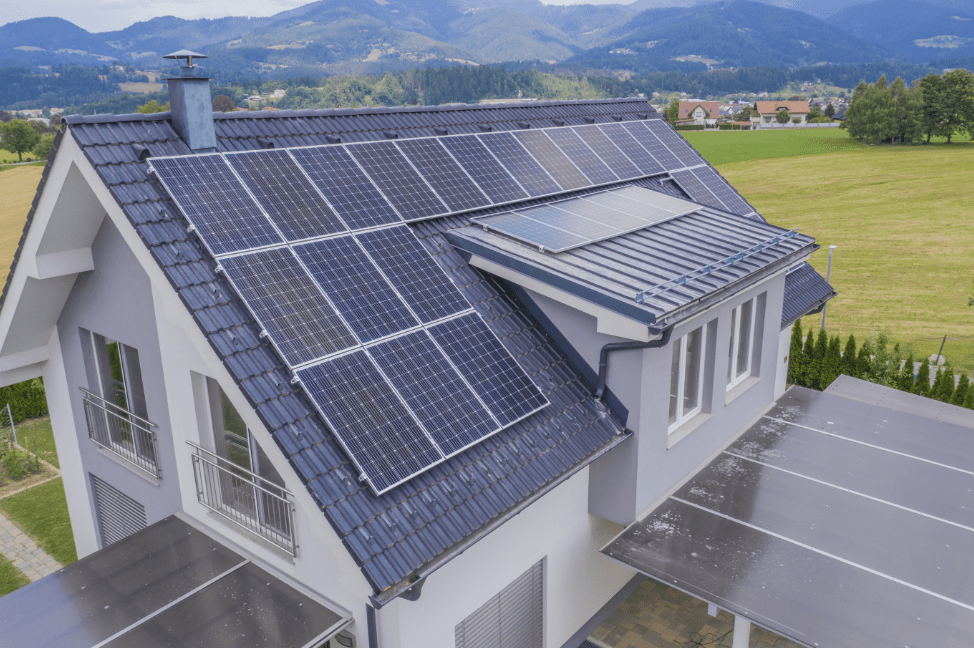
Adding a solar power system to your home can look like a big expense upfront. However, if you consider that many manufacturers offer a 25-year warranty on panels and installation, and it takes, on average, less than ten years to pay off the panels, not putting a solar power system on your house may be a bigger expense over time.
Work With the Installer
At the end of the equation, solar installers make no money if you can't get the financing. They often have access to a wide variety of lenders that are happy to help you finance your project.
If money is the only thing standing in your way, get a quote on financing your solar in New Mexico project from the salesperson who gave you the quote. The solar power industry is nimble, flexible, and generally cutting edge. Their lending partners are likely to offer that same flexibility.
Go Through the Government
Fannie Mae offers a HomeStyle Energy mortgage that offers to let you borrow forward; that is, you can borrow against what the appraised value will be once you get your solar panels up and charging.
There are restrictions for using this mortgage. You will still need to meet the credit requirements and you will need to work with a contractor who can manage the inspection process. However, this mortgage may help you waive some inspection fees and other costs.
Tap Into Your Equity
If you have equity in your home, now is the time to refinance and install a solar power system. The year 2020 has demonstrated that our economy is actually quite fragile. One viral outbreak has created a huge boomerang in the markets and has wiped out incomes for many citizens.
With solar power in your home, you will have the electricity to keep your food fresh. You may not be able to run your air conditioning system for long stretches, but there are many things that you won't have to worry about once solar is on the roof and doing the job. For example, you can still run the washing machine and the furnace blower will still come on. There may be electrical rationing, but you won't be in the dark.
Talk to your lender about a loan that looks forward. If an appraisal indicates that you will add value to your home with a solar power system, apply for a mortgage that encompasses that increased value. What you used to spend on electricity can be routed right into your mortgage payment. Additionally, as long as you're under the limit, the interest on your mortgage is tax-deductible.
Consider a Lease
If you're not in a good place to qualify for a loan, you can lease the system or get a power purchase agreement or PPA with a solar installation company. These are long term contracts that
- are lower than your electric bill
- add value to your home
- are not your responsibility to upgrade or repair
A PPA contract can be especially beneficial for the right buyer. Your installation will cost you nothing. The panels come with warranties up to 20 years. Any extra solar power generated is yours to keep and to sell back to the grid. Finally, in the event of damage from weather or unforeseen event, the system is covered and not your responsibility.
Signing up for a leased solar power system is a terrific option if you're struggling to get your credit back in shape. Even better, in the brightest months, it can give you a bit of income. A solar power system will lower your utility bills and add to the value of your home. Finally, a quality solar install can start a neighborhood and city-wide trend that can reduce the carbon footprint of the entire region and leave a better world behind.
No matter how you get there, a solar power system in your home is a wonderful idea. Watch your meter spin backward in June, July and August? Why not! Add to the value of your home for 0 money down and pay lower utility bills for the life of your contract. Use the equity in your home to put more money in your pocket every month. Finally, take out a separate loan and watch the system pay for itself over time.
You may also like
Why Solar Street Lights Are Catching on For Businesses and Cities
Solar Energy: Fast Facts, Stats, and Trends You Need to Know
7 Ways to Make Your Home Energy-Efficient and Save Money
How Going Electric Can Help You and The Environment
